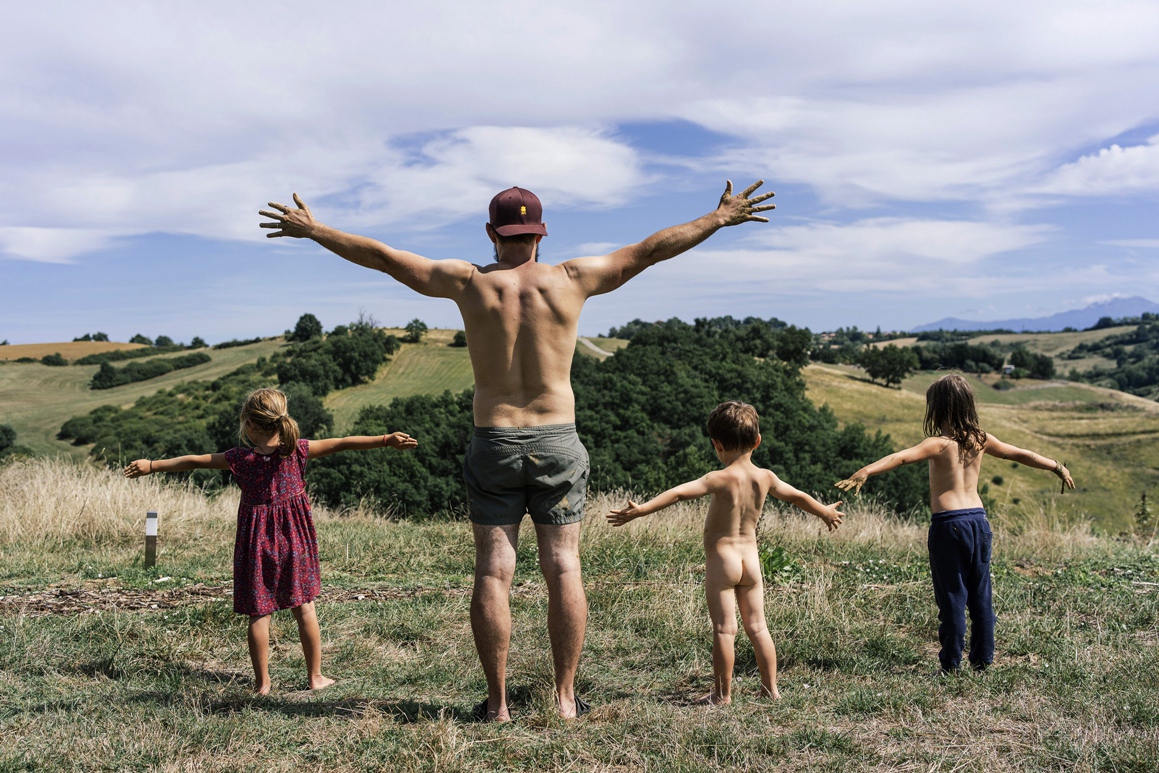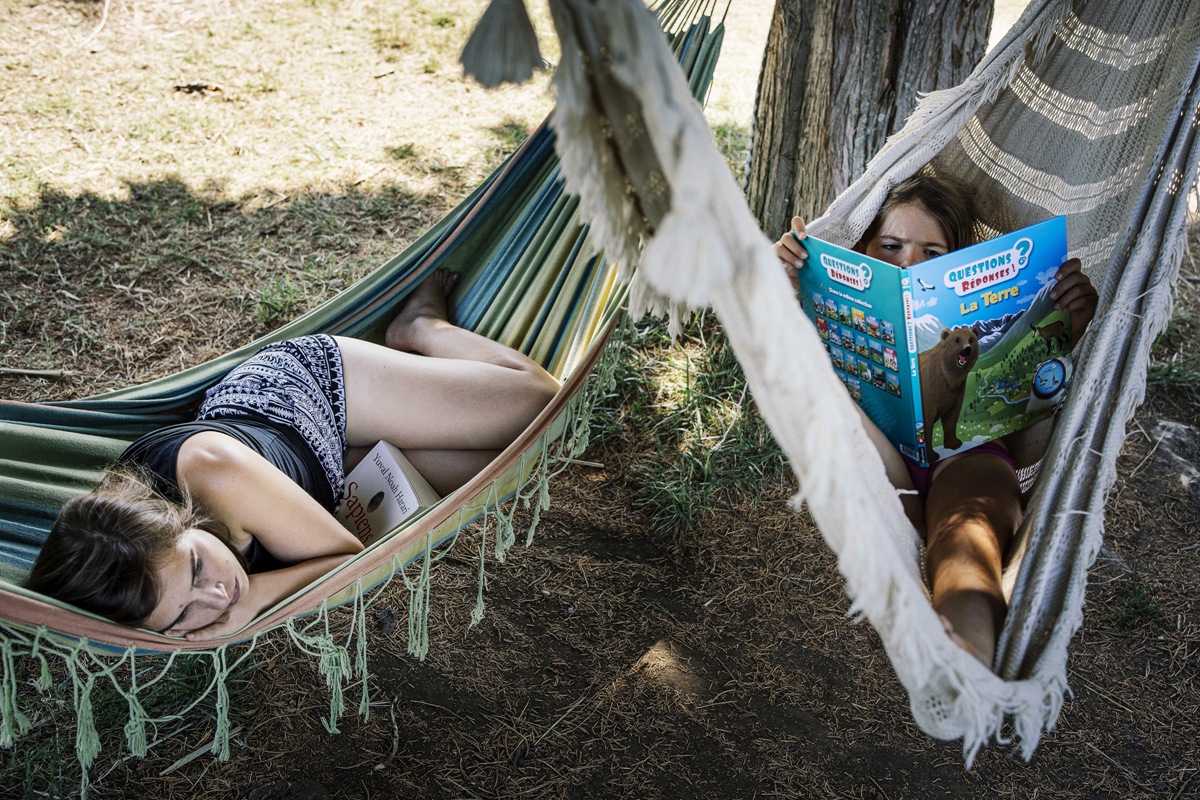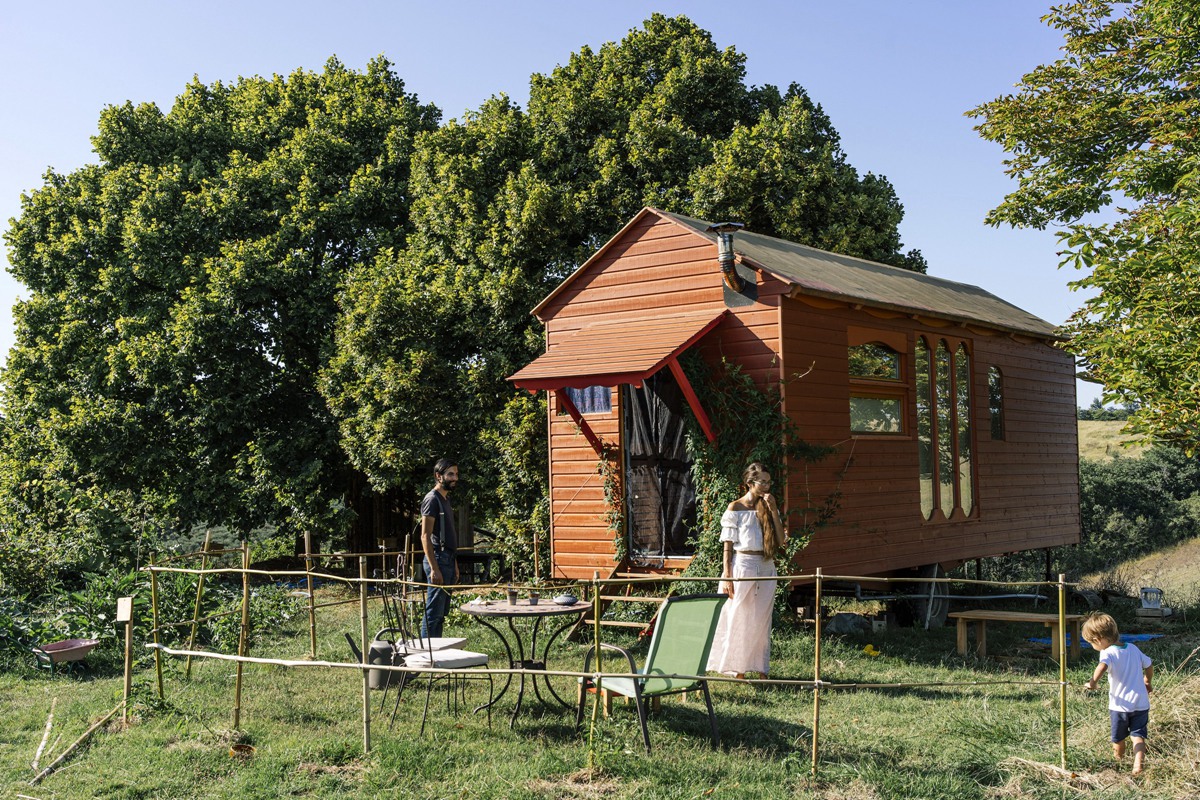Alternative Community: Living in the Village of Pourgues
Text and photos by Denis Meyer
Abridged by Syharn Shen (沈思含)
Alternative Community: Living in the Village of Pourgues
Text and photos by Denis Meyer
Abridged by Syharn Shen (沈思含)

On a hill in the eco-village of Pourgues in Ariège, a father and his three children stretch their bodies. As the community practices direct and shared democracy, children learn at their own pace.
In this young community, there is only one watchword: freedom, which is the supreme value for adults and their children. No one here is forced: not even to learn to read before they want to.
A blond glow runs between the tomato plants. Laughter fills the vegetable garden. It is 9 o'clock. While the schoolchildren of France begin their day of classes, Gaïa and Zeÿa play. The 3-year-olds stop to watch Dora, the little girl's mother, take care of the young shoots. Further on, Mia, 8 years old, draws unicorns. Here in the village of Pourgues, in Ariège, children do not attend school. "This is a place where people live independently and are connected to nature, a place where everyone is welcome and which advocates an alternative way of life," summarises Dora. An alternative that pushes the experience of direct and shared democracy to the maximum. A sort of large multi-nuclear family where individual freedom is the supreme value. In this little corner of collectivist utopia, the eight children of the community, aged between 3 and 14, live according to their desires under the benevolent gaze of 17 adults.
"And here we are, a sort of large-scale social laboratory, with adults who use democratic tools to live, do and raise together", says Ramïn Farhangi, co-founder of the place and father of Zeÿa. He closes the weekly meeting where the villagers discuss and make decisions together. Their choice of life is debated, even among their families. Like Ramïn's father. Before adopting the Huckleberry Finn look, his son was a suit-and-tie enthusiast. In another life, Ramïn was a consultant. An exemplary career in the best establishments in the 16th arrondissement of Paris, a graduate of Centrale, a six-figure annual salary. "And the growing impression that he was in a bullshit job, a profession that served no purpose," he recalls with a bitter smile. Ramïn gave up everything and co-founded the Dynamic School in Paris, based on the Sudbury model. Students decide for themselves how to manage their time and learn through their everyday experience rather than through formal teaching. This model was a major inspiration for the creation of Pourgues in 2016. Here, adults do not decide for the children, seeing the mini-beings as free individuals capable of learning what they want. At any age and in any situation.

The Pourgues children decide for themselves what they learn, how they learn, and when they learn.
Pourgues is not one of those closed groups that advocate autarky. On the contrary. Every summer, the ecovillage organises tourist stays. This week, 18 adult visitors and 9 children came to experience direct and shared democracy. Among them, Christelle, Stéphane and their 7-year-old twins. "Since birth, children are always learning: to walk, to talk. They do it naturally, at their own pace. And then? From the age of 3, everything suddenly becomes different and he learns only under duress? I don't believe this. The child is always observing and imitating," expressed Christelle. During their stay, the families observe the interaction between the adults and the Pourgues children, who are also experts in DIY, recycling and haggling.
Marjorie Bautista, co-founder of the Dynamic School in Paris and the village of Pourgues, mother of little Zeÿa, says in a calm voice: "We think that democratic education is the best way to develop everything children need to understand our world. And in particular creative, adaptability and relational skills that are essential for resilience." This position is shared by many experts on new education methods. "Pupils from alternative schools, Steiner, Sudbury, Montessori, Democratic School, etc. have a very strong power of adaptation which enables them to integrate more easily and to have more confidence in themselves," confirms Fabienne Serina-Karsky, a researcher specialising in new schools. A few minutes with young Mia is enough to prove her right: "I don't waste time with things that don't interest me, I'm happy every day, all the time. I'm happy every day, all the time. And when I'm older, I'll do what I want. At Pourgues, you can achieve anything." Simple. Concise.

Co-founders of the eco-village of Pourgues, Ramïn Farhangi and Marjorie Bautista, together with little Zeÿa, in front of their house made from a boxcar.
Contact Us | Plan a Visit | Donate
8 Lide Road, Beitou 11259, Taipei, Taiwan
886-2-2898-9999
005741@daaitv.com
©Tzu Chi Culture and Communication Foundation
All rights reserved.
